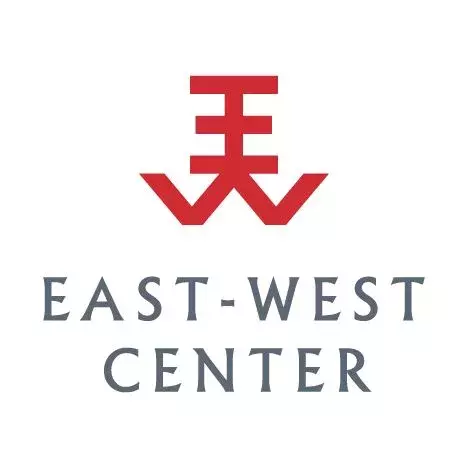Error message

Session 1
May 29, 2020
9:00 - 11:00 am (PHT)
Challenging our Assumptions of the Future
The unprecedented magnitude and impacts of the COVID-19 pandemic have reshaped society in dramatic ways. It has caused a surreal shift in human behavior - stockpiling food, sanitary tissues, face mask, hand sanitizers, social distancing, embracing compliance and risks, sharing, and care. This crisis has tremendously changed the way we think, connect, communicate, perceive, and imagine possibilities, opportunities, and risks. While the global outbreak has plunged us into staying indoors and focusing on survival, the value of anticipatory thinking - the future - is now more critical than ever before. This crisis has prompted leaders and organizations to employ futures thinking to help them imagine alternatives and create preferred post-pandemic future worlds. Futures thinking, the art, and capability of anticipation have remained as urgent as ever.
This initial session introduces futures thinking as a mindset and as an essential critical capability (personal and organizational) to anticipate change and manage societal transformation in the twenty-first century. The session will introduce the Polak Game, a generative futures thinking method that reveals people's assumptions and images of the future. This session explores and facilitates a conversation on how our assumptions about futures influence the way we create, react to and interpret change and make sense of opportunities and risks in a post-pandemic world (near-term and long-term prospects).
Session 2
June 5, 2020
9:00 - 11:00 am (PHT)
Mapping Default and Plausible Futures
What are the possible, direct, and indirect (positive and negative) outcomes of COVID-19 to US-Philippines relations and crisis preparedness? What is the full impact (near-term, medium-term, long-term) of the COVID-19 pandemic to the Philippines (i.e., idea, nature, society, politics, economics, culture, technology)? What could the Philippines' new normal look like?
This session introduces one of the foundational pillars of futures thinking - mapping. Mapping the future brainstorms and scans the consequences of an event, a topic, a phenomenon, or a trend. The process outlines the default and plausible futures landscape. Participants will learn to apply and combine INSPECT, a scanning methodology, and Futures Wheel Analysis, a visual tool for brainstorming outcomes, to map the future.
Session 3
June 11, 2020
9:00 - 11:00 am (PHT)
Anticipating Emergence in the World After
What are the emerging issues of Philippines-US relations, and crisis preparedness in a post-pandemic world?
This session introduces emerging issues analysis (EIA). It facilitates a conversation and builds participants' capacity to identify emerging issues and opportunities in Philippines-US relations and crisis preparedness in a post-pandemic scenario. EIA is not a trend or forecasting tool; it is an anticipatory method or exercise that helps decision-makers and foresight participants to identify 'barely visible' issues and opportunities. Emerging issues emerge as wildcards, surprises, black swans, or black elephants when unidentified, unanticipated, unscanned.
Session 1
May 29, 2020
9:00 - 11:00 am (PHT)
Challenging our Assumptions of the Future
The unprecedented magnitude and impacts of the COVID-19 pandemic have reshaped society in dramatic ways. It has caused a surreal shift in human behavior - stockpiling food, sanitary tissues, face mask, hand sanitizers, social distancing, embracing compliance and risks, sharing, and care. This crisis has tremendously changed the way we think, connect, communicate, perceive, and imagine possibilities, opportunities, and risks. While the global outbreak has plunged us into staying indoors and focusing on survival, the value of anticipatory thinking - the future - is now more critical than ever before. This crisis has prompted leaders and organizations to employ futures thinking to help them imagine alternatives and create preferred post-pandemic future worlds. Futures thinking, the art, and capability of anticipation have remained as urgent as ever.
This initial session introduces futures thinking as a mindset and as an essential critical capability (personal and organizational) to anticipate change and manage societal transformation in the twenty-first century. The session will introduce the Polak Game, a generative futures thinking method that reveals people's assumptions and images of the future. This session explores and facilitates a conversation on how our assumptions about futures influence the way we create, react to and interpret change and make sense of opportunities and risks in a post-pandemic world (near-term and long-term prospects).
Session 2
June 5, 2020
9:00 - 11:00 am (PHT)
Mapping Default and Plausible Futures
What are the possible, direct, and indirect (positive and negative) outcomes of COVID-19 to US-Philippines relations and crisis preparedness? What is the full impact (near-term, medium-term, long-term) of the COVID-19 pandemic to the Philippines (i.e., idea, nature, society, politics, economics, culture, technology)? What could the Philippines' new normal look like?
This session introduces one of the foundational pillars of futures thinking - mapping. Mapping the future brainstorms and scans the consequences of an event, a topic, a phenomenon, or a trend. The process outlines the default and plausible futures landscape. Participants will learn to apply and combine INSPECT, a scanning methodology, and Futures Wheel Analysis, a visual tool for brainstorming outcomes, to map the future.
Session 3
June 11, 2020
9:00 - 11:00 am (PHT)
Anticipating Emergence in the World After
What are the emerging issues of Philippines-US relations, and crisis preparedness in a post-pandemic world?
This session introduces emerging issues analysis (EIA). It facilitates a conversation and builds participants' capacity to identify emerging issues and opportunities in Philippines-US relations and crisis preparedness in a post-pandemic scenario. EIA is not a trend or forecasting tool; it is an anticipatory method or exercise that helps decision-makers and foresight participants to identify 'barely visible' issues and opportunities. Emerging issues emerge as wildcards, surprises, black swans, or black elephants when unidentified, unanticipated, unscanned.






